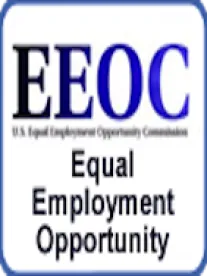In response to the recent Emergency Use Authorization granted by the U.S. Food and Drug Administration (“FDA”) for the COVID-19 vaccine, the Equal Employment Opportunity Commission (“EEOC”) published guidance today outlining employer compliance mandates under the Americans with Disabilities Act (“ADA”), Title VII of the 1964 Civil Rights Act (“Title VII”) and the Genetic Information Nondiscrimination Act (“GINA”). The EEOC’s guidance addresses a number of pressing questions posed by employers and employees alike regarding the vaccine. Some of the more important takeaways from today’s guidance include the following:
-
The administration of an FDA-approved or authorized COVID-19 vaccine to employees is not a “medical examination” for purposes of the ADA, and, therefore, may generally be required by employers under federal law.
-
Although the vaccine is not considered a “medical examination” under the ADA, pre-screening questionnaires given to employees by an employer in connection with a vaccination may implicate the ADA’s provision on disability-related inquiries. In such case, the employer would need to demonstrate that the pre-screening questions are “job related and consistent with business necessity.”
-
If an employer requiring a COVID-19 vaccine determines that an employee who cannot be vaccinated due to a disability poses a direct threat at the worksite, the employer cannot exclude the employee from the workplace (or take any other action) unless there is no other way to provide a reasonable accommodation (absent an undue hardship) that would eliminate or reduce this risk. Under the ADA, “undue hardship” is defined as “significant difficulty or expense” incurred by the employer in providing an accommodation.
-
Employers requiring the vaccine must also provide a reasonable accommodation for an employee’s sincerely held religious belief, practice or observance that prevents the employee from receiving the vaccination unless doing so would pose an undue hardship under Title VII. Notably, under Title VII, “undue hardship” is defined as having more than a de minimis cost or burden on the employer.
-
Title II of GINA is not implicated when an employer administers a COVID-19 vaccine to employees or requires employees to provide proof that they have received a COVID-19 vaccination. However, if any pre-screening questions by the employer ask about genetic information (e.g., immune systems of family members), such inquiries could violate GINA.
This new guidance sheds further light on how employers might best structure their employee policies and procedures relating to COVID-19 vaccinations in the coming months. Employers who choose to mandate the vaccine should consider requiring vaccination from a pharmacy or other third-party health care provider to avoid the ADA implications associated with any pre-screening vaccination questions. These employers will also want to educate and train their managers and supervisors so that they are prepared to field and appropriately respond to any requests for accommodation, and should carefully consider privacy laws surrounding the employer’s receipt and maintenance of employee medical information. Further, employers must be prepared to consider all applicable state laws that may impact their ability to mandate COVID-19 vaccinations.
Employers who are inclined to simply encourage employees to get vaccinated may want to consider certain measures to promote participation, including, but not limited to, making the vaccine convenient and accessible by providing vaccinations on-site or near the workplace, covering any cost associated with the vaccine, and/or ensuring that employees are compensated for time spent getting vaccinated.




 />i
/>i
